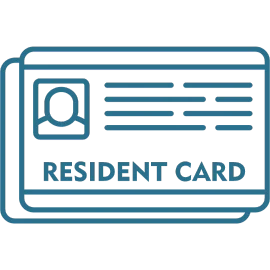Selecting the right immigration lawyer in the United Kingdom is an important decision that could affect your future, your family, and your right to remain in the country. Many applicants rush into agreements without seeking essential information, which can lead to delays, misunderstandings, or avoidable mistakes. It is wise to pause and consider your options before committing to legal advice or making any payment.
A brief but focused discussion can help prevent long-term difficulties. In this guide, we set out the key questions you should ask to ensure you receive clear, professional advice from a knowledgeable immigration lawyer.
What to Consider Before Your First Meeting
Before your initial meeting, take time to review the lawyer’s credentials, public feedback, and official registration. Confirm the lawyer is regulated by the Office of the Immigration Services Commissioner (OISC) or the Solicitors Regulation Authority (SRA). Identify your main immigration issue, such as a spouse visa, work permit, or immigration appeal.
Gather any important information about your own case, including previous applications, dates, correspondence, and details of your current status. Write down questions to ask, focusing on the lawyer’s experience and approach with applications similar to yours. Being well-prepared enables you to assess the lawyer’s suitability and make an informed decision.
What Is Your Experience With Cases Like Mine?
Not every immigration lawyer deals with the same types of cases. Some specialise in family visas, others work permits, nationality matters, or asylum claims. Ask how often the lawyer has managed cases that are similar to yours, what results they have achieved, and how long such cases typically take.
A lawyer with direct experience in your visa category is more likely to spot issues quickly and offer accurate guidance. This expertise also helps ensure that supporting documents are presented well and that your application stands a better chance of success. If your case is complex due to previous refusals, dependants, or unusual circumstances, practical experience in your area becomes even more vital.
Do not hesitate to ask for examples of similar cases the lawyer has handled in the past year. Choosing the right lawyer can save you time and reduce the risk of refusal.
Can You Provide Recent Success Stories or Client Testimonials?
A reliable immigration lawyer should be able to discuss previous cases that relate to yours. Ask how those applications were managed and what results were obtained, keeping in mind that they must protect client confidentiality.
Testimonials and client feedback can offer valuable insights into the lawyer’s communication style, responsiveness, and ability to handle setbacks. Go beyond star ratings; read written reviews to understand how others felt about the service. Consistently positive feedback and evidence of successful outcomes are good signs of a dependable adviser.
What Are the Total Costs and What Is Included?
Legal fees can differ greatly between firms, so always ask for a breakdown of all charges before making a decision. Find out whether fees are fixed or calculated hourly, and ask exactly what the fee includes, for example, application preparation, document checks, submission to the Home Office, and any follow-up support
Also, check whether VAT is included or charged separately. Some advisers have flat fees that do not cover certain services like appeals or urgent cases. Always ask for a written quote and make sure the terms are clear. If there could be extra costs later, request an estimate in writing. Knowing the fees ahead of time helps prevent misunderstandings and keeps your budget on track.
Who Will Actually Manage My Case?
At many firms, the person you speak with during your consultation might not be the same one handling your case. Ask who will be responsible for managing your application day to day. This includes who will prepare your application, reply to the Home Office, and keep you informed.
Also, check the qualifications and experience of that person. It is a good idea to find out if they work full-time at the firm or only on a contract. A reliable firm will introduce you to your case handler early on and explain their role clearly. This helps build trust and makes sure communication is clear throughout your application.
How Will We Communicate and How Often?
Consistent and regular communication is crucial when dealing with immigration matters. Ask how and when you will receive updates, which communication methods the lawyer uses (such as calls, emails, or meetings), and who you can speak to in an emergency.
Some firms use legal assistants or caseworkers for much of the regular contact, so clarify this before you begin. Request information on standard response times and whether any after-hours support is provided for urgent issues. Slow responses or unclear communication may indicate broader problems within the firm.
What Happens If My Application Is Refused?
Even well-prepared applications can be refused. Ask what the lawyer will do if your application is unsuccessful. Will they analyse the refusal notice, suggest your next options, and support you through appeals or a new application?
Check whether help after a refusal is included in the quoted fee or if it will cost extra. Ask about the lawyer’s experience in these situations and whether they have a good track record with appeals or reviews.
Also, check whether this support is covered by the original fee or if it costs extra. A good lawyer will clearly explain your options and will not promise guaranteed approval. Ask about their experience with refused applications and how they handle those situations. It is important that they act quickly and give you honest advice during this process.
What Documents Will I Need To Provide?
An experienced lawyer will provide a clear checklist tailored to your visa category. This usually includes identity documents, financial records, evidence of accommodation, relationship proof, or previous Home Office letters. Ask whether particular items must be translated or certified and what deadlines apply for submitting each document.
If your case involves dependants or previous refusals, special or extra documents may be required. Clarify how your evidence should be organised and submitted. A good lawyer will explain why each item is needed and how missing evidence could affect your application.
Do You Provide a Written Agreement or Terms of Service?
Never proceed without a formal written agreement. This should detail the legal services to be provided, your responsibilities, full costs, deadlines, and how to raise complaints or end the contract if necessary.
Ask to see this agreement before paying any fees. Check for clear service standards, timescales, and policies for delays or changes. A transparent lawyer will be happy to discuss these terms in detail before work begins.
Are There Any Risks or Weaknesses in My Case?
Every application carries some level of risk, even when matters appear straightforward. Ask the lawyer to identify any weaknesses in your circumstances and how these might be addressed. This might include gaps in your evidence, previous visa refusals, or potential financial shortfalls.
A trustworthy adviser will provide honest assessments and will not avoid discussing challenges; instead, they will offer practical solutions and realistic outcomes. This discussion ensures you know how your risks will be managed and allows you to plan accordingly.
Looking for a Lawyer to Avoid Costly Mistakes?
At JPS Immigration, our team have years of experience assisting clients across the UK and globally. Immigration law can be intricate, and even minor errors can have serious consequences. Our lawyers handle every case personally, offering clear advice, bespoke strategies, and robust legal support throughout the process.
If you seek a trusted legal partner to guide your application successfully, contact us today for expert advice and reliable representation.
FAQs
Can I change my lawyer if I am unhappy with their service?
Yes, you have the right to switch legal representatives at any point. Make sure you obtain your case file and written confirmation of the transfer.
Can an immigration lawyer speed up my visa process?
While a lawyer cannot influence Home Office processing times, they can ensure your application is accurate, avoid delays due to mistakes, and gather strong supporting evidence.
Should I pick a lawyer based near me?
Location is less important than the lawyer’s experience and communication skills. Many immigration lawyers work with clients across the UK and internationally.
How do I check if a lawyer has received disciplinary action?
You can search on the SRA or OISC websites for any records of disciplinary measures. Public records allow you to confirm a lawyer’s professional standing.











































